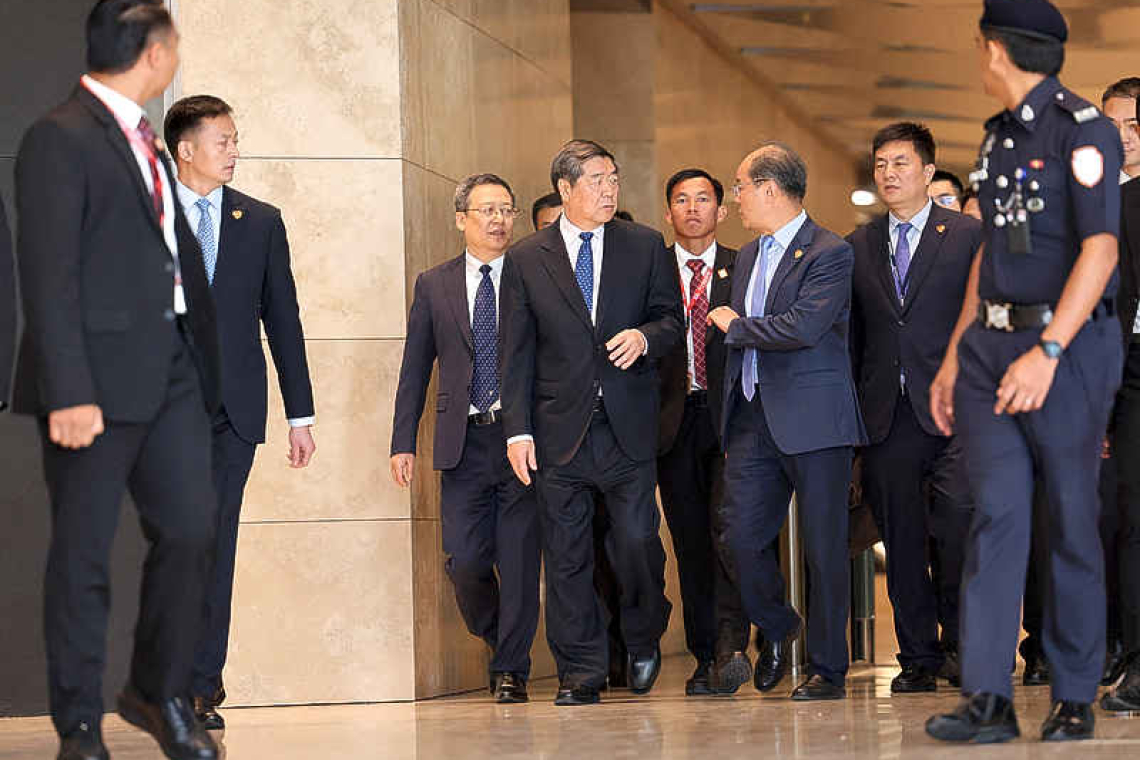KUALA LUMPUR--Top Chinese and U.S. economic officials on Sunday hashed out the framework of a trade deal for U.S. President Donald Trump and Chinese President Xi Jinping to decide on later this week that would pause steeper American tariffs and Chinese rare earths export controls, U.S. officials said.
U.S. Treasury Secretary Scott Bessent said talks on the sidelines of the ASEAN Summit in Kuala Lumpur had eliminated the threat of Trump's 100% tariffs on Chinese imports starting November 1. Bessent also said he expects China to delay implementation of its rare earth minerals and magnets licensing regime by a year while the policy is reconsidered.
Chinese officials were more circumspect about the talks and offered no details about the outcome of the meetings.
Trump and Xi are due to meet on Thursday on the sidelines of the Asia-Pacific Economic Cooperation (APEC) summit in Gyeongju, South Korea, to sign off on the terms. While the White House has officially announced the highly anticipated Trump-Xi talks, China has yet to confirm that the two leaders will meet.
"I think we have a very successful framework for the leaders to discuss on Thursday," Bessent told reporters after he and U.S. Trade Representative Jamieson Greer met with Chinese Vice Premier He Lifeng and top trade negotiator Li Chenggang for their fifth round of in-person discussions since May.
Bessent said he anticipates that a tariff truce with China will be extended beyond its November 10 expiration date, and that China will revive substantial purchases of U.S. soybeans after buying none in September while favouring soybeans from Brazil and Argentina. U.S. soybean farmers "will feel very good about what's going on both for this season and the coming seasons for several years" once the deal's terms are announced, Bessent told the ABC program "This Week".
Greer told the "Fox News Sunday" programme that both sides agreed to pause some punitive actions and found "a path forward where we can have more access to rare earths from China, we can try to balance out our trade deficit with sales from the United States."
China's Li Chenggang said the two sides reached a "preliminary consensus" and will next go through their respective internal approval processes."The U.S. position has been tough, whereas China has been firm in defending its own interests and rights," Li said through an interpreter. "We have experienced very intense consultations and engaged in constructive exchanges in exploring solutions and arrangements to address these concerns."
Trump arrived in Malaysia on Sunday for a summit of the Association of Southeast Asian Nations, his first stop in a five-day Asia tour that is expected to culminate in Thursday's face-to-face with Xi in South Korea. After the weekend talks, Trump struck a positive tone, saying: "I think we're going to have a deal with China."
Trump had threatened new 100% tariffs on Chinese goods and other trade curbs starting on November 1, in retaliation for China's expanded export controls on rare earth magnets and minerals. China controls more than 90% of the world's supply for the materials, which are essential for high-tech manufacturing from electric vehicles to semiconductors and missiles. The export controls and Trump's threatened retaliation would disrupt a delicate six-month truce under which China and the U.S. reduced tariffs that had quickly escalated to triple-digit rates on each side.
The U.S. and Chinese officials said that, in addition to rare earths, they discussed trade expansion, the U.S. fentanyl crisis, U.S. port entrance fees and the transfer of TikTok to U.S. ownership control.Bessent told NBC's "Meet the Press" programme that the two sides have to iron out details of the TikTok deal, allowing Trump and Xi to "consummate the transaction" in South Korea.







